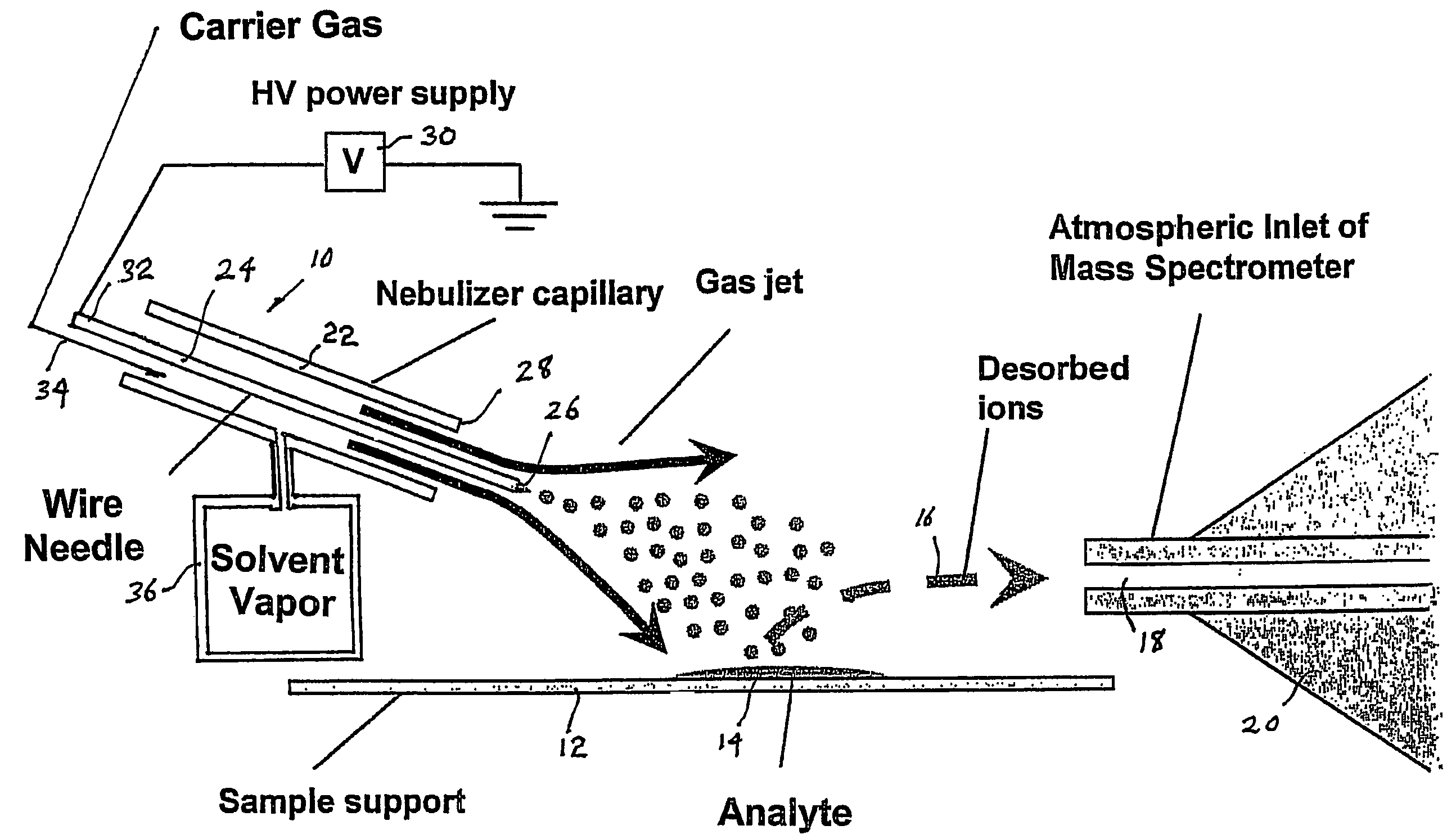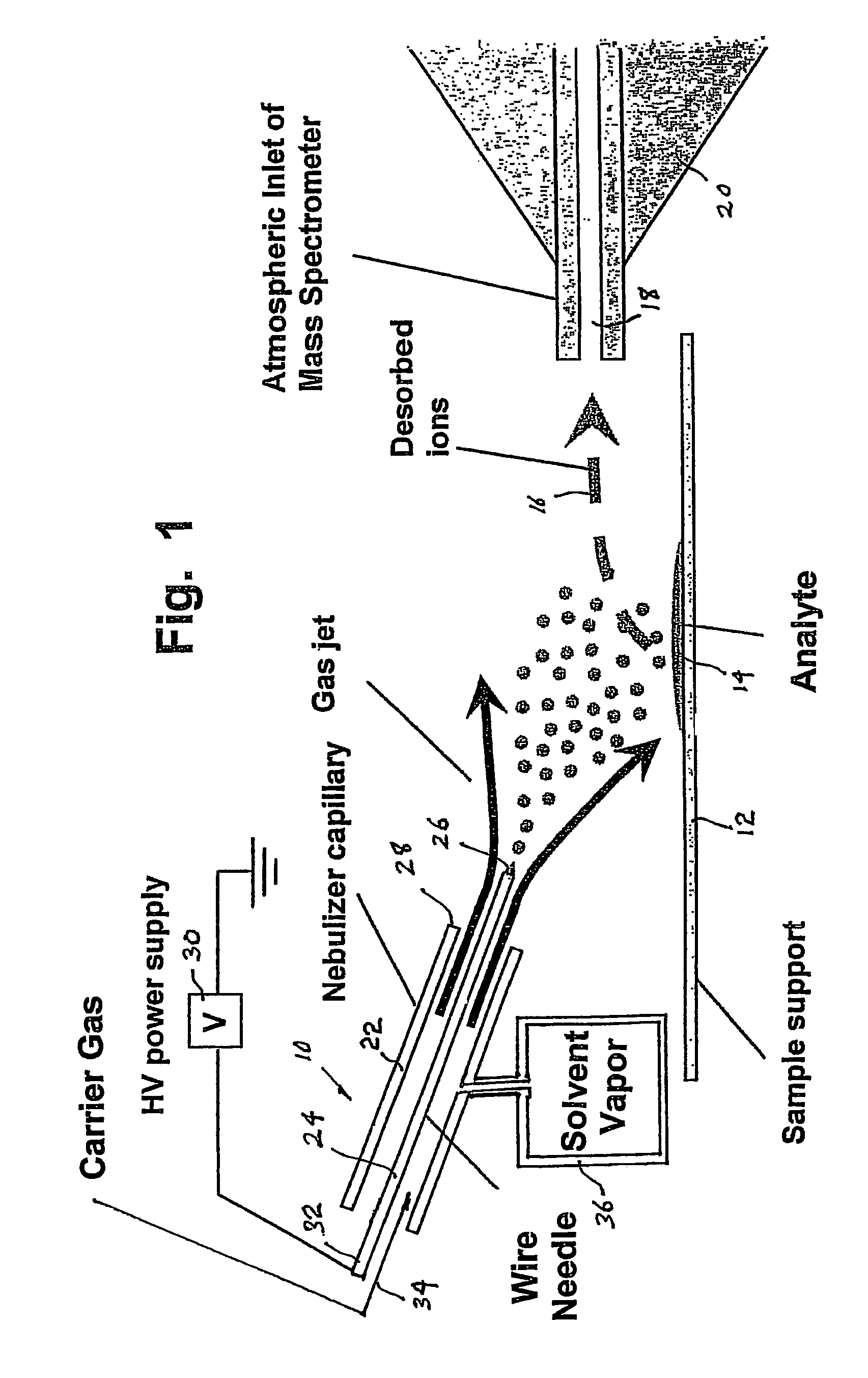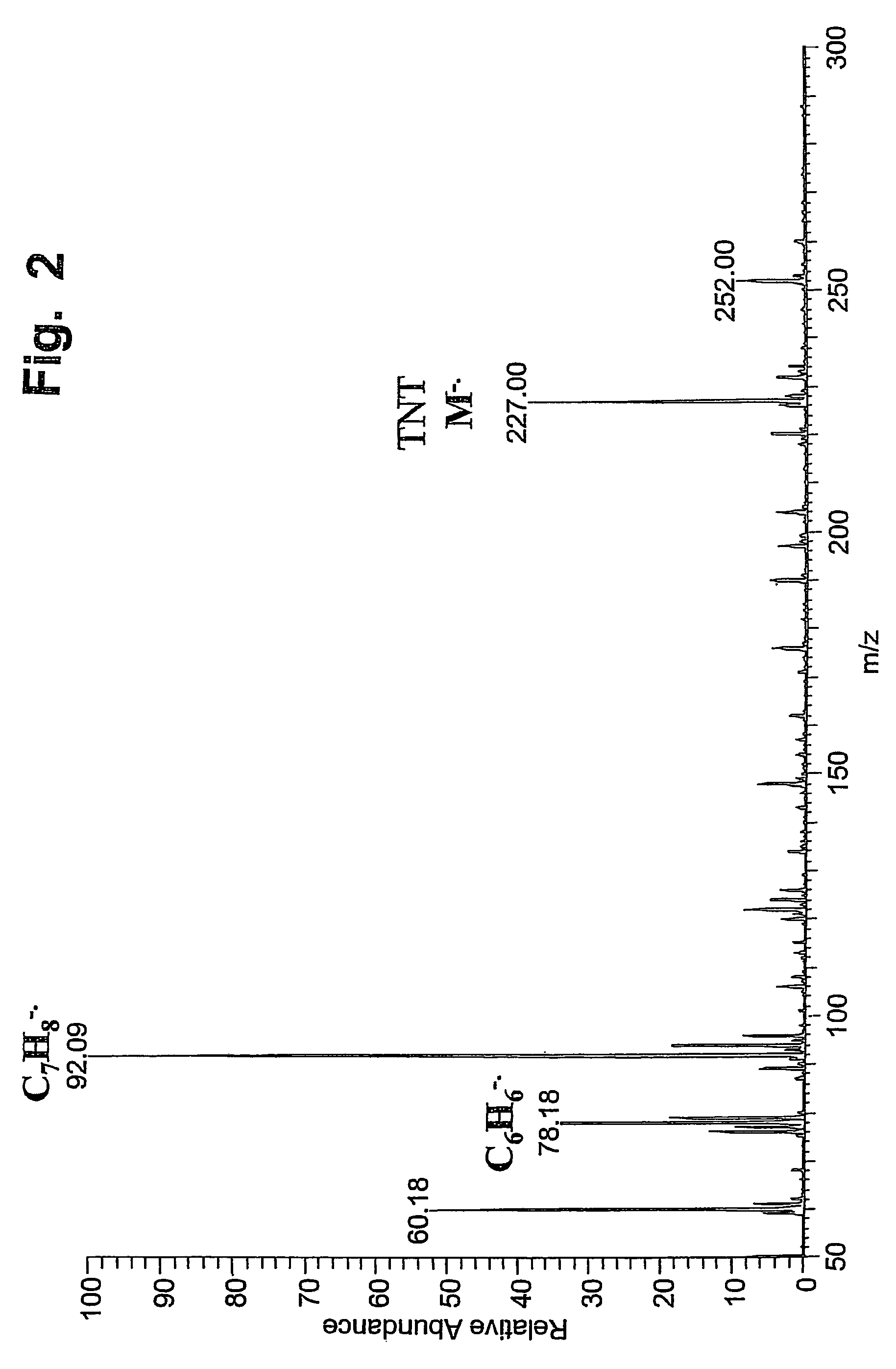Method and system for desorption atmospheric pressure chemical ionization
a technology of atmospheric pressure and chemical ionization, which is applied in the direction of particle separator tube details, separation processes, instruments, etc., can solve the problems of manual sample transfer, inconvenient sample manipulation, and unsatisfactory detection, so as to minimize the chance of false positive or negative, the effect of high specificity and high sensitivity
- Summary
- Abstract
- Description
- Claims
- Application Information
AI Technical Summary
Benefits of technology
Problems solved by technology
Method used
Image
Examples
Embodiment Construction
[0015]A desorption atmospheric pressure chemical ionization system is shown in FIG. 1 to include a DAPCI nozzle 10 directed toward a sample support 12 on which an analyte 14 may be situated. The sample support can be clothing, luggage, plants, skin, etc., and for non-living supports, the support can be heated to aid the process. Desorbed ions 16 of the analyte 14 can be directed or attracted to an atmospheric inlet 18 of a mass spectrometer, ion mobility spectrometer or other instrument 20 capable of discerning the chemical or biological composition of the desorbed ions. The inlet 18 can be situated adjacent to, or spaced considerably from, the sample support 12.
[0016]The DAPCI nozzle 10 includes a capillary 22 having a wire, needle or other elongated electrode 24 generally coaxially aligned within the capillary 22. The electrode 24 can have a tapered tip 26 that projects from an outlet end 28 of the capillary 22. A high voltage power supply 30 is coupled to a portion 32 of the elec...
PUM
 Login to View More
Login to View More Abstract
Description
Claims
Application Information
 Login to View More
Login to View More - R&D
- Intellectual Property
- Life Sciences
- Materials
- Tech Scout
- Unparalleled Data Quality
- Higher Quality Content
- 60% Fewer Hallucinations
Browse by: Latest US Patents, China's latest patents, Technical Efficacy Thesaurus, Application Domain, Technology Topic, Popular Technical Reports.
© 2025 PatSnap. All rights reserved.Legal|Privacy policy|Modern Slavery Act Transparency Statement|Sitemap|About US| Contact US: help@patsnap.com



